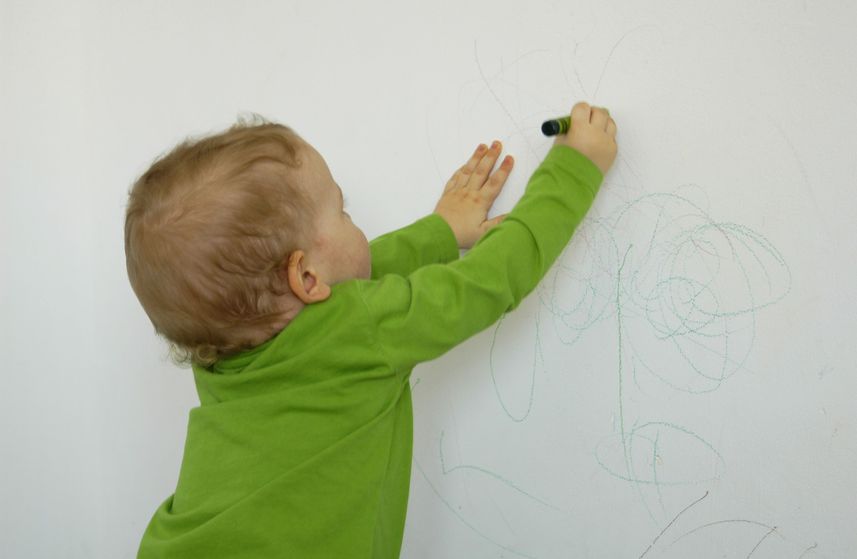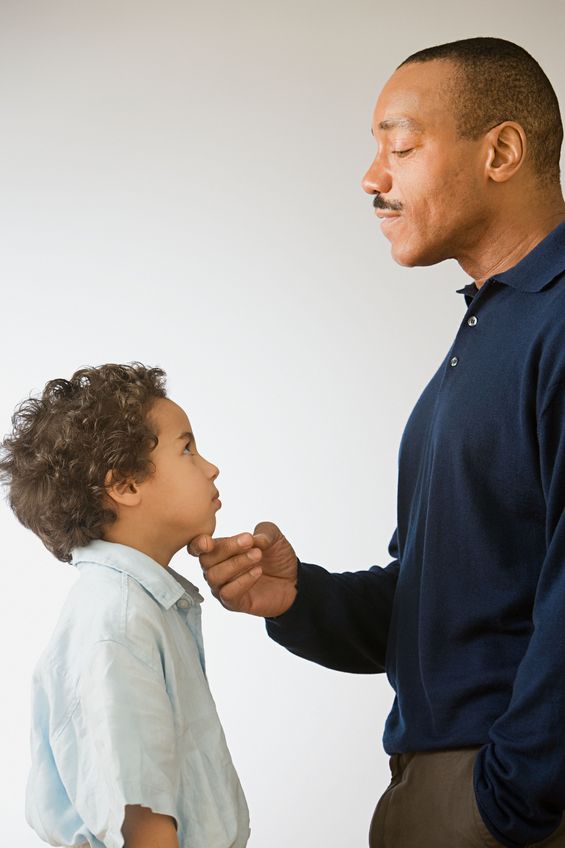In the first part of this article, we have 1. saved money on bath time by cutting down on the soap and the frequency of our kids’ bath, 2. established trust in administering medicine to the children by tasting their medicines and allowing them to administer our own medicines, 3. shown our kids how to save when we led them by example, 4. provided security, comfort and also saved on time and energy with bed-sharing, and 5. bonded with family members by listening to music together.
I have said in the previous article and I will reiterate it here that every family is unique. These tips may apply to you or not but you might as well see if it can help you or another family that you know needs help. Modern parents like us are very lucky to have the internet at our beck. It is easier to look for expert opinion to the point of being spoon-fed by websites. Allison Slater Tate says in her article in the Washington Post that we, the Generation X, are the first parents in the age of “iEverything”. We are the ones who grew through the transition of snail mail to e-mail to messenger and may as well be around for the next higher technology.
Can you imagine how our parents managed it? Their trial and error had to be tried and erred by themselves. Luckily, Gen-Xers are likely to be born to parents who are Boomers. What this means to us is that parents who were born around in 1950s (and later) are far less authoritarian than their parents were. Columnist Barbara Graham of Grandparents.com, a Boomer herself, admits that she and friends of her vintage are more in love (gaga in fact) with their grandchildren than their own mothers were. Let me expound on my first tip.

“Dick Cheney with Wife Lynne with Grandson Philip Richard Perry” on Wikimedia
Orient the grandparents. In the film Parental Guidance where Bette Midler plays the grandmother, her character Diane Decker says that being a grandparent is a second chance at being parents. You know what that means. Get ready for spoiled kids.
Like us parents, grandparents are not perfect. That is clearly obvious when they had us. But then there is a limit to being a grandparent and often they unknowingly interfere with the growth of the parents and the children. One common tendency is they do not listen to the parents and/or do not respect their rights to be the parents, among many. This may be because of their natural parenting instinct. In developed countries, grandparents provide a significant amount of non-parental care where they stand-in for the parental role; 26% in Australia, 25% in UK, 20%-40% around Europe. In the United States, care varies from 10% to 42%, depending on the household arrangement.
But whether that may be the case or not, parents must execute primary care, the grandparents should be secondary. Remind them that. Gently so as not to break their hearts. If they are to be involved…a lot, set limits. Our three daughters are the first grand children from both my side and my husband’s side. You can only imagine the amount of doting we have to control. My mother told me, “We do not have the right to discipline but we have the right to love our grandchildren”. I told her, if she loved my children, she must allow me and my husband to grow with them. It is also important to orient the child or children. Align their expectations and attachment as well with their grandparents.
Outlaw narcissism. Researchers warn that as primary caregivers, it is our fault why our children are growing up conceited. Dr. Brad Bushman, co-author of Dr. Eddie Brummelman of a research in Ohio State University, says that
Children believe it when their parents tell them that they are more special than others. That may not be good for them or for society,
They warn that telling our child they are better or more special than their peers is a one-way ticket to raising “selfish little narcissists“. Overvaluing. Inflating. Flattering. We may think we are encouraging our excessively excited-to-learn, ready-to-conquer-the-world, do-all-that child when in fact, we are slowly teaching them that they can be better than us, too. So much so that as they grow a little older, they talk back or act gracelessly towards us.
My husband and I grew up in a family where you would be second- guessing whether or not you are valued. The question “Are my parents even proud of me?” often came to mind. It’s not that we were invisible to them or our efforts did not matter, our parents merely taught us what the real world was like. That was how they were raised, that’s how they raised us and that’s how we intend to raise our children.
The study by Dr. Brummelman and Bushman invloved 565 parents and their kids who were 7-11 years old, over a period of 1.5 years. It turns out, parents cannot seem to draw the line between “valuing” and “overvaluing”.
It is important to express warmth to your children because that may promote self-esteem, but overvaluing them may promote higher narcissism.
Playtime=Quality time. There is a long list to the benefits of play to a child’s horizontal and vertical growth even more so with a parent or both parents participating in.
Child Development Institute lists patience, problem solving, social skills, and creativity under values and skills we can teach our kids while at play. How? Play involves sensory and motor skills apart from others, which helps in the easy absorption of ideas and ideals. I can nag at my daughter all day and even as she may apparently have understood it the first time, she will forget it the next. This is because children respond differently than adults so we have to infiltrate their world, simply put ourselves in their shoes.
Besides, time spent playing with our kids is not entirely lost time. Life coach Susan Biali, MD encourages that even getting outside, working together on a hobby, telling jokes, or kidding around, offer physical and mental health we won’t get from work (or an iPhone or iPad). Stress relief, better physical health, better self-esteem, and social support are the benefits that parents and children alike experience from playing together.
Whenever my husband is home from abroad, he spends his three to six months being present with us, especially with our daughters. He is a fun dad, if I may say so – he fills our inflatable pool with clean water everyday so that we, not only the kids, can cool off on hot days together. Or we gather around a table, trace our hands (sometimes including our feet), color them, and compare them with each other. There is a lot more. Just because it’s his vacation doesn’t mean it’s a time off from being a provider. Giving time to our children is not about how long we are with them but how much we are with them. It is more of our presence than our time that really matters.

“The Secret” 1909 by Helen Hyde on Wikimedia
Teach them “The Secret”. Who doesn’t know about “The Secret”? It is only the world’s best selling book! But of course, we are not really talking about the book, we are talking about what the book and other disciplines in the world are telling us. Law of attraction. Positive thinking. Good vibes. These are a few of my favorite things. These are the concepts that elude us in a world of pressure and stress. But kids do not know about pressure or stress. Children are walking hand grenades of energy and happiness. Refocus this verve and make it useful for you and the family. It works wonders!Business Insider highlights 12 significant abstractions based on The Law of Attraction: The Basics of the Teachings of Abraham (Hicks). The general view of all 12 tenets, point toward the power of the mind. “Like attracts like”. “It is done unto you as you believe”. Of course we know all about that, unless you haven’t been in the loop. But why bring the chidren in? Why involve them?
When I was seven years old, my mother, my sister and I, didn’t have much. But we had magazines of cool stuff, delicious food, and beautiful clothes. Every night, before I went to sleep, I take time to go over these magazines again and again. I would picture myself having this stuff, eating this food, putting on these clothes. It wasn’t until recently, I was cleaning our old junk that I came across the very same magazines and smilingly reviewed them. Then I realized that I have managed to attract and experience those material possessions. (If only I’d thought harder on that Ford Ranger).
What it taught me is that a child’s mind can be just as powerful and potent when directed well. If instructed properly, we can teach our children to redirect their negative energies like anger, jealousy, and annoyance. You know, instead of telling them that they are “better than anyone” we can teach them that they can be “better than themselves“.
But if we are to preach, we must practice first. Sadly, as I juggled career and motherhood, I have forgotten about the law of attraction. I have resigned from my work at the hotel recently when I gave birth to the third one so I have more time for the children now and for extra stuff – thinking included. I have welcomed the concept of the law of attraction back to my life and taught it to our eldest who can now understand. She tells me she dreams of going to Disneyland, I tell her to let it be the first thing you think about when you wake up and the last thing you pray for when you sleep. That and other good stuff (and that Ford Ranger).
Watch animated films (and a little dose of cartoons) together. Yeah, my husband and I are suckers for gushy Pixar films, action-packed Dreamworks animation, or colorful Blue Sky cartoons. Not to mention anime. When caught amidst his daughters “fangirling”, my husband will sit through a whole webisode of Monster High without budging.
Apart from Parental Guidance, watching a movie – especially an animated one – is another opportunity for us to bond. Although cartoons nowadays (even back in our days were) are absurd, trippy, and controversial (though we still watch them), if properly monitored and in moderation, is fine in the presence of an adult. In fact, 80% of Canadian parents, according to study, watch once a week with their children. They say they love watching cartoons with them and the same number admits that it gives them time to relax together.
A forum on ResearchGate discusses on the harmful effects of cartoons on a child’s development. ResearchGate is a website where researchers from across the globe can share their thoughts to a researcher who proposes a subject matter. In this case, the issue touches on cultural relevance, parental sanctioning, literacy rate, and other concerns that are rooted deeper than the mere colors and sounds of cartoon production. It is raised that cartoons that are created in other countries or those filmed in another language, thus dissimilar culture, may be interpreted differently. A simple physical gesture may be an aggressive action to another. Or else if a cartoon is produced in a developed country and transmitted to a home where the literacy rate is low, the original message may not be understood as it should be.
Why does this matter? Well, not everyone lives in a developed or a first world country. While that is true, the broadcast of once rare films easily reach hinterlands for as long as there is internet connection or mobile data. So anyone who can access Google, even a child, can watch cartoons. Sitting with your child throughout a movie or an episode of their favorite cartoon will not only be quality time spent together. It will also be a perfect time to know each other’s reactions and feelings, thereby knowing more about your children’s preferences and personalities.
If you ask me…
I have said much. But let me say this, my husband and I are one of those couples who would tell you to enjoy the craziest time of your children’s childhood. As you attempt to put yourself and your household together by saving up, rearing your child and telling on your parents not to spoil their grandchildren – remember that your children are the youngest they are now. One day, when you wake up, you will realize that they have grown up and out of your life and into their own…and that’s when you will really miss them. So do not take parenthood in stride, enjoy the baby steps!


